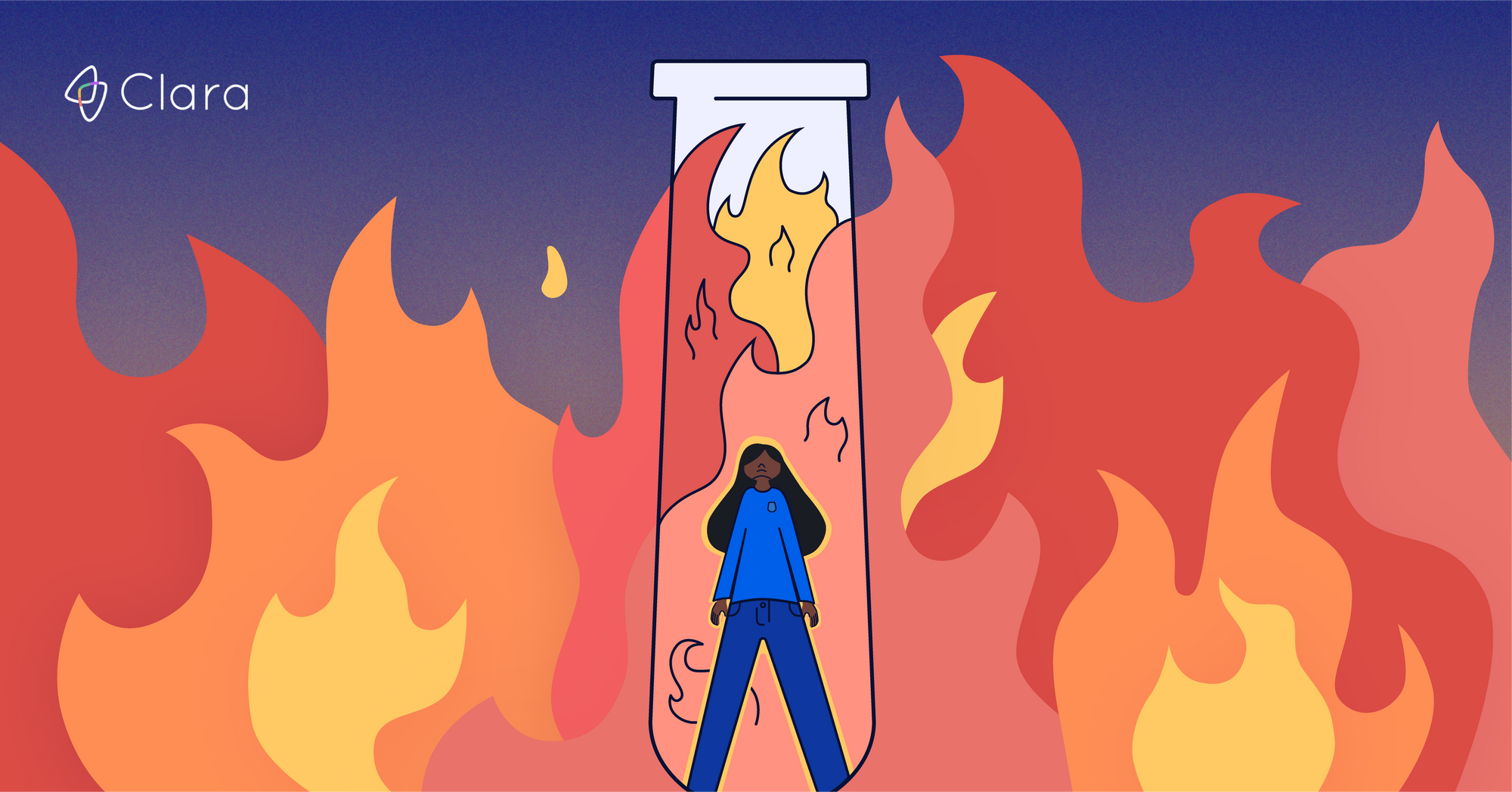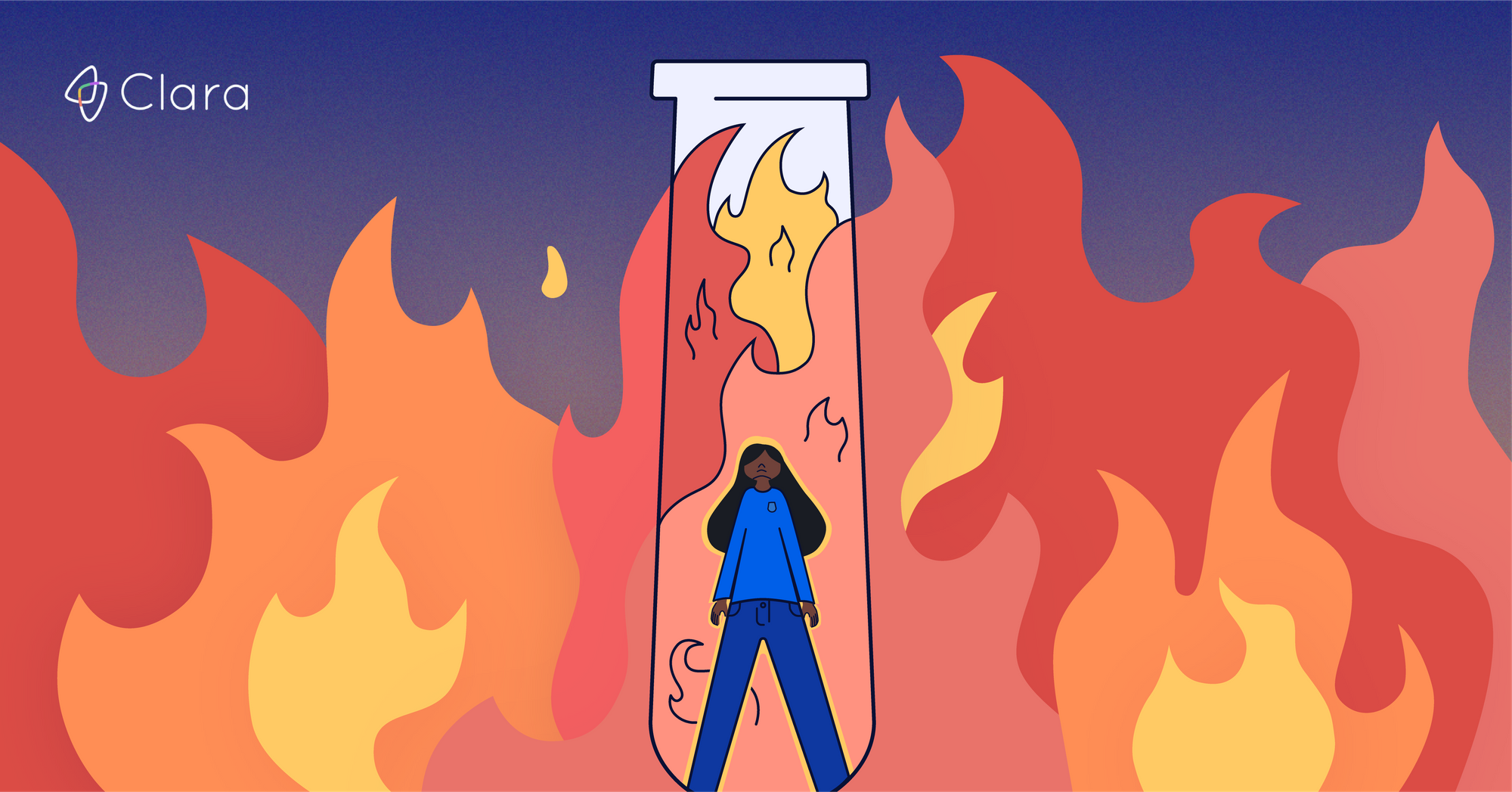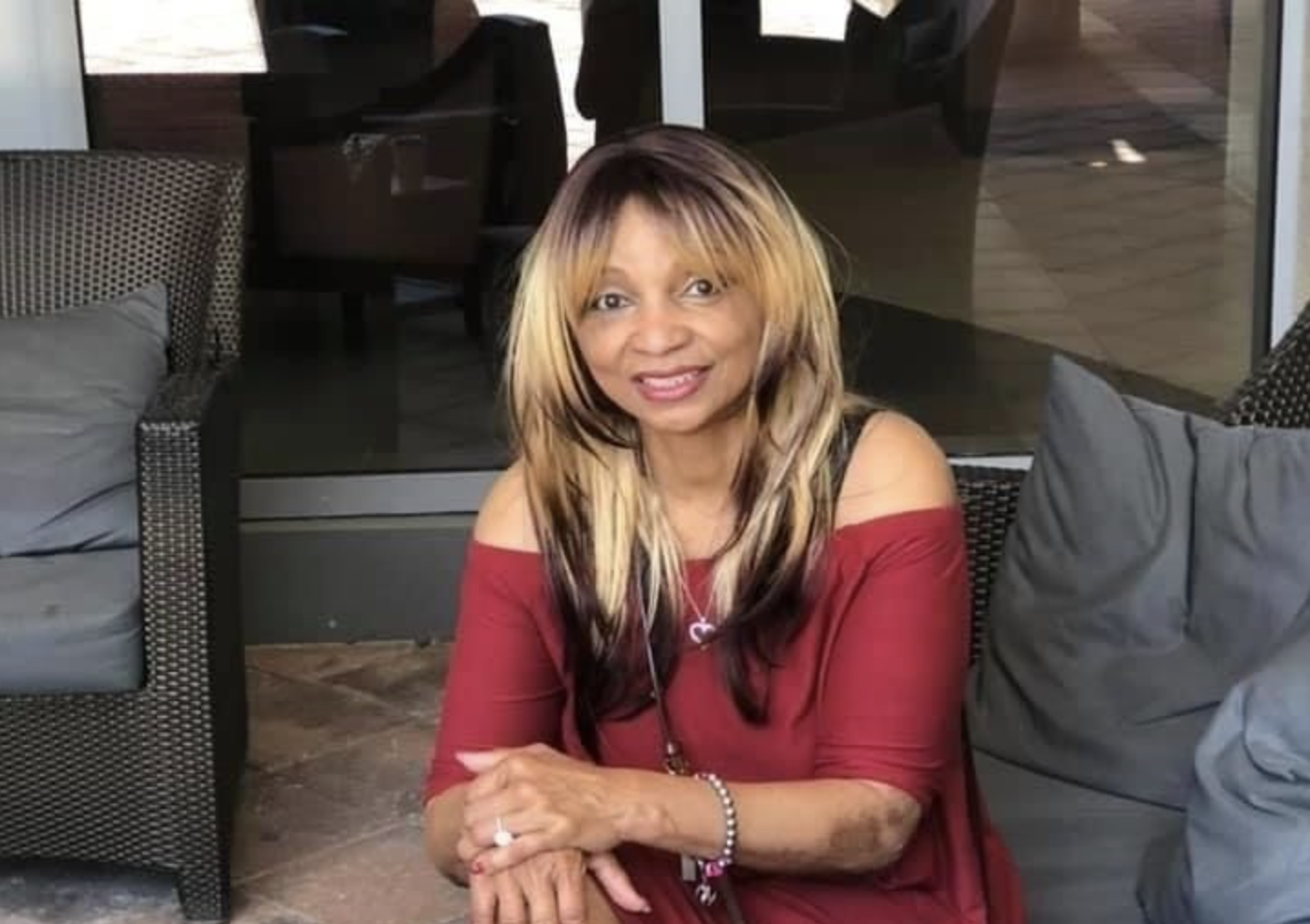Our latest Patients Have Power episode is called "Mother-Daughter Duo: Navigating Life with SCA" (You can subscribe to the podcast at Apple Podcasts, or listen to it with the media player above).
In this episode, Aaron speaks with Laura and Cameryn, a mother and daughter duo, about a rare disease called spinocerebellar ataxia and the way it's impacted their lives.
Below is a transcript of the episode, edited for readability.
Spinocerebellar ataxia is also known as SCA, and it's a neurodegenerative disorder. That means it impacts the brain. Particularly and specifically, it impacts a part of the brain called the cerebellum, which is very important because it plays a role in all sorts of things, like coordinating movements and speech and balance. And because the cerebellum plays a role in so many different functions, when a person has SCA, the range of these symptoms and the rate at which that disease progresses can vary widely from person to person.
In some cases like Cameryn's, symptoms, they can develop for years before a patient is even diagnosed.
We'll get into all the details of how SCA has impacted the lives of Cameryn and Laura and their family. But it all began innocuously with a pretty common rite of passage for most teenagers, which is the driver's test.
Cameryn: I was 14. I went to get my driver permit, and I couldn't pass the visual exam part of the test.
For most of us, we went into our driver's tests fearing parallel parking or signaling properly. In Cameryn's case, it was the vision test. It was this inability to get past the vision test that indicated, for the first time, that something might be wrong.
Laura: So we went to a pediatric ophthalmologist who was able to determine that something was wrong with Cameryn's retina, so it wasn't just the lens or the cornea, things that can be repaired. It's the retina which has millions of cells. She was eventually diagnosed with macular degeneration, which we found out later is a part of spinocerebellar ataxia type 7 that she has.
A lot of people who have the type that Cameryn has don't even see any symptoms until they're older in life, so it's pretty rare. It's a rare disease anyway, but it's pretty rare that someone at 15, 14, whenever her body was starting to present these symptoms, would start to present themselves.
It took Cameryn about 11 months to get to a diagnosis, and that's actually on the short side of things, or shorter side of things, when it comes to a rare disease like SCA. So while the speech diagnosis might have been something of a blessing just to have a firm answer about what was the root cause, the condition SCA began to take its toll on Cameryn's life.
Now, Cameryn is an exceptional person. She's incredibly driven and motivated, so it won't surprise you that, in high school, she was also quite driven, as well. She played two sports, water polo and swam. She played flute in the band. She danced and she was an honors student.
She had quite a lot of things on her plate and they began to get impacted by this emergence of a rare condition into her life.
Cameryn: Well, I was an athlete, a two-sport athlete. After I was diagnosed, I wasn't able to play sports anymore. And I played the flute, and after I was diagnosed, reading the sheet music and keeping up in band class wasn't easy for me anymore.
The thing about Cameryn is she refused to give up and leave these activities that she loved so much. She actually stayed on her water polo team as manager.
Cameryn: I was actually the manager of the water polo team because I knew I couldn't be on the team, but I still wanted to be a part of the team. And I played water polo five years previous to that, so I, so I could really help the team. That was very hard carrying the equipment 'cause the balls were very heavy. I really enjoy being a part of a team, and having friends that have the same interest as me.
Like we said, Cameryn's quite exceptional. She refused to leave the team and stayed on as equipment manager for as long as she could carry that equipment, even as it got heavier and heavier, and helped with logistics and planning.
And of course, as these changes are happening in Cameryn's life, there are changes happening in her family's life, as well. Laura spoke a little bit about the nature of these changes as they began to surface in the overall family's life.
Laura: We'd never heard of it before. We had no family history of ataxia. Nothing about it made sense as to why our child has this rare disease.
The first thing we did was finding the correct doctor. Cameryn's doctor is out of the University of Chicago hospital systems, and he is an ataxia subject matter expert. We're fortunate enough to live close enough to where he's been working on this disease for decades, at this point. Then we started with doing online research.
And we found out about the National Ataxia Foundation. She was diagnosed in November, 2015. In April the next year, they were having a conference, so my husband and I flew to the conference in Orlando to learn as much as we could about the disease. And we've pretty much gone every year -- but it was hard. It was hard seeing people at various stages of this disease and trying hard not to imagine this disease and those progressions related to our daughter.
At that point, she was still fairly able to walk on her own, and her speech wasn't as labored; her eyesight wasn't as bad. So it's definitely progressed quickly.
Laura also speaks on the resources and network that have helped support her and her family.
Laura: As far as reaching out and having a network, my husband reached out to the people on Facebook, for example. Cameryn belongs to an under-30 group on Facebook. I'm not really as much of a social media person as my family, but I know my support system, my family, my friends, have been phenomenal.
We hold a fundraiser every year, and people come out and support that. We've raised tens of thousands of dollars for ataxia research. So I feel very supported in the community, and I know that there are groups out there if people want to be connected to people through social media. There's definitely some options. They've been supportive ever since Cameryn's diagnosis. They come out, support our fundraiser.
Locally - from our community and our family throughout the country - everyone has really stepped up to try and help as best they can.
But of course, something like SCA is so huge in someone's life, things necessarily had to change for Cameryn and her family. But as things changed, they were able to get more and more involved with the National Ataxia Foundation, and that led to really cool opportunities and Cameryn's life and Laura's life and in their community's lives.
Laura mentioned doing a fundraiser, but Cameryn actually goes out and speaks in front of conferences and in front of researchers, talking about the need for more research, faster research, and some sort of cure.
Laura: You know, they asked Cameryn to speak in front of a room of well over 100 researchers who were all pulled together for the global conference, which was in Vegas earlier this year. They wanted Cameryn to be the kick-off person to let those doctors know that they need to find a cure, and they need to find it quickly.
Cameryn: It was very cool to tell the researchers there needs to be a change, and they need it to be sooner than later.
Laura: We've also been connected through the National Ataxia Foundation through various other ways, such as articles. Cameryn has featured in Brain & Life magazine. They've been able to connect us with different avenues for Cameryn to be vocal and be an advocate.
She works really closely with the under-30 Facebook page. And she's very outspoken on that page with anyone who, who has the diagnosis.
Now, I don't think people like Cameryn and Laura need something like SCA to emerge into their lives to become advocates and to exercise their voice for something or someone who needs it. But, certainly, SCA gave them both a reason to get vocal and try to impact change where they could.
One thing that I found really moving, and this is something I've seen across the patient community is when Cameryn and Laura are given opportunities to make their voices heard - Cameryn especially - when she has this opportunity to, say, speak in front of a crowd in Vegas or go out and help host a fundraiser or volunteer at some event, she never really says no. And she's animated by this idea that, one day, there will be a cure, and that she can do something about it now to make sure that the urgency of the patient group, the patient community that she's a part of, is felt.
Not just heard, but felt by the researchers.
Cameryn: I struggle every day to do basic necessities, and if I speak to that, then maybe every person will be more motivated to finding a cure to this disease.
Laura: I think that there's definitely a sense of pride and she wants to do these things. Obviously, they come to me and they say, you know, "Is this something that you think she might be interested in?" I'm like, "Well, let me ask her".
And sure enough, she's always like, "Yeah. I'll do it."
One thing that I was so impressed by was just how willing and capably Laura gave support and care to Cameryn, to allow Cameryn to flourish as best as she possibly can and to live her fullest life. And how Cameryn in return wanted to give something back to the world, even though like Laura said, it's an unfair disease, and she has it, and life has been unfair.
For Cameryn, it's something that was personified by her refusal to leave the water polo team when she had every excuse to, and stay on as long as she could until she physically could not carry the equipment anymore.
She is just someone who wants to contribute and be part of something big and great, and she hasn't let SCA stop her in her pursuit of that.
Cameryn: I want to be a social worker at a deaf school. So in high school, I took an ASL class (American Sign Language). In college and two ASL classes last semester. The class itself wasn't fun, but the teacher was really fun. He made class very enjoyable and motivated me to try and do better. I didn't do too well in that class, but he made it seem better.
Laura: We want her to pick something that interests her. She had a really great social worker in high school, and she was very motivated by her and inspired by her. She still keeps in touch with her to this day. She's like, "You know, I think I want to do social work," so we looked into the program.
And then when Cameryn said she wanted to do social work for a deaf, with the deaf community and probably at a deaf school, her parents found the community college that she goes to. They have an American Sign Language program, so you can actually get a certificate in American Sign Language.
Laura: I think the motivation is we just kind of feed off of what's important to her, to keep her engaged, to keep her motivated, to keep her busy, so she's not wallowing in this condition.
Of course, she has sad days, but then most times she's very positive and wanting to know "What are we doing today? What's on the agenda?" She works with a program where she gets out in the community and works at an elementary school in the library. So we have her doing things for the most part, Monday through Friday. Or actually, Monday through Saturday, for the most part.
I'm just trying to keep her engaged on the things that she likes to do that motivate her.
Taking classes one, maybe three at a time, two at a time, whatever it takes to get it finished. There's no rush, and we've told her "Take what you want." If she wants to take a required class and take a fun class at the same time so that she does stay motivated and will eventually get an associate's degree and then can go on to get her bachelor's degree. We feed off of her and whatever she wants to do.
Ataxia doesn't just have to define you.
Laura notes that you can do what you want to do, especially if you have support.
Laura: Hopefully, everybody with this diagnosis does have some kind of support - some family support, community support, and finds out all the different things that your state offers, your community offers, your school district offers (depending on how old they are when they're first diagnosed).
We had to navigate through an IEP system, the individualized education plan. We didn't even know what that was really. So just be open to the help that people offer and be there for the person who is managing this disease, 'cause it's a rollercoaster.
We just stay hopeful that the researchers and the medical community will have something that will slow this down to help her and others have a regular life. Just to be able to walk on her own without any kind of assistance is just something basic that we all take for granted.
And that's another thing, too. Don't take anything for granted.
The thing that struck me over and over throughout the conversation with Cameryn and her mother was this almost defiant attitude in the face of something so big as SCA. Laura calls it a terrible disease, and its impact is quite debilitating on a person.
And yet, Cameryn refuses to be bowed by it and just continues to do what she can to live the life that she dreams of living. I asked Cameryn to speak on how she looks at life. I thought she encapsulated it so well, and I wanted to end the conversation with that.
Cameryn: I want everyone to know that it is a horrible, horrible disease. There's no cure. I just want everyone to know that one day, I will be better. This isn't forever.
Participating in a clinical trial is one way to access new treatment options before they're widely available and to take an active role in furthering, understanding, and treatment of conditions such as SCA. There are currently 16 active studies around the world for SCA.
Here at Clara Health, we're always available to support patients with accessing new investigational therapies, so if you or a loved one have any questions, feel free to contact us. Access our 24/7 live support for help in connecting with available options.






